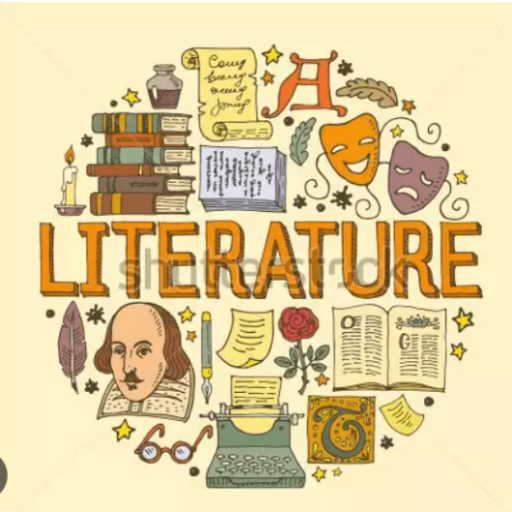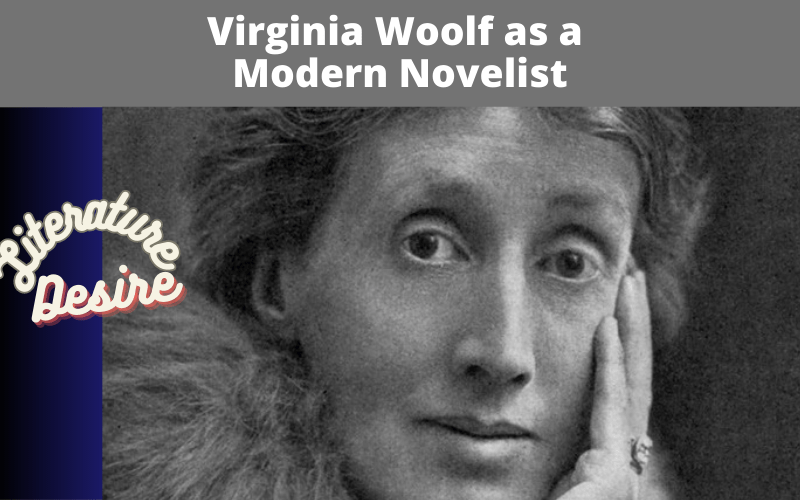Virginia Woolf’s works exemplify the characteristics of modernist literature. She defied conventional narrative structures and delved into the realms of individual consciousness, capturing the intricacies of human thoughts and emotions. This article will explore Virginia Woolf as a Modern Novelist.
Through her masterful use of the stream-of-consciousness technique, Woolf created a sense of intimacy and psychological depth in her novels.
Advertisement
Virginia Woolf as a Modern Novelist
One of the notable aspects of Woolf’s writing is her feminist perspective. She challenged traditional gender roles and provided nuanced portrayals of women struggling against societal constraints.
Advertisement
In Woolf’s novels, there are characteristics of their experimental narrative structures, introspective character portrayals, and exploration of complex themes.
Advertisement
Woolf’s innovative use of the stream-of-consciousness technique is particularly noteworthy. Her writings were instrumental in advancing feminist literary theory and inspiring future generations of female authors.
Advertisement
Virginia Woolf’s contribution to modern literature is immeasurable. Her captivating prose, daring narrative techniques, and thought-provoking themes continue to captivate readers, ensuring her enduring legacy as a modern novelist.
Characteristics of Virginia Woolf’s Writing
Stream of Consciousness Technique
The world recognizes Virginia Woolf as one of the foremost pioneers of the stream of consciousness. Her distinctive writing style, marked by lyrical prose and introspective exploration, captivated readers and critics alike.
Woolf’s works pushed the boundaries of traditional narrative structure, delving deep into the psyche of her characters. In novels like “Mrs. Dalloway” and “To the Lighthouse,” Woolf skillfully employed a stream of consciousness to convey the complex thoughts, emotions, and experiences of her characters.
Through this technique, she captured the subtleties of human consciousness and challenged conventional notions of storytelling.
Psychological Exploration of Characters
Virginia Woolf is renowned for her profound psychological exploration of characters in her literary works.
Through her innovative narrative techniques and empathetic portrayals, Woolf delves deep into the complexities of human minds, unraveling the intricacies of their thoughts, emotions, and inner lives.
Woolf’s use of the stream-of-consciousness technique allows readers to intimately experience the inner thoughts and subjective experiences of her characters.
By depicting the continuous flow of thoughts and associations, she captured the nuances and contradictions of human experience. In Woolf’s works, characters are not mere plot devices, but intricate beings with rich interior lives. She explored their hopes, fears, and insecurities, often blurring the boundaries between their inner thoughts and external reality.
Experimentation with Narrative Structure
In addition to her innovative use of stream of consciousness, Virginia Woolf also pushed the boundaries of traditional narrative structure.
She experimented with fragmented narratives, non-linear timelines, and multiple perspectives, challenging the conventional notion of a linear and coherent storyline.
Through these narrative techniques, Woolf aimed to capture the multidimensional nature of human experience and the fragmented nature of consciousness.
Influence of Modernism on Virginia Woolf’s Writing
Virginia Woolf, a central figure in the Modernist movement, was deeply influenced by the principles and techniques of Modernism, which significantly shaped her writing style and thematic exploration. The impact of Modernism on Woolf’s work can be seen in several key aspects of her novels.
Virginia Woolf’s Narrative Techniques
One of the significant influences of Modernism on Woolf’s writing is her innovative narrative techniques. Modernist literature challenged traditional linear storytelling and embraced fragmented narratives, multiple perspectives, and non-linear structures.
Woolf incorporated these experimental techniques into her works, such as “Mrs. Dalloway” and “To the Lighthouse,” utilizing stream of consciousness and employing shifts in time and perspective. This allowed her to capture the complexity of human thought and subjective experience, blurring the boundaries between past and present, reality and memory.
Furthermore, Modernism encouraged a focus on the interior lives of characters and their psychological depths. Woolf’s exploration of the inner thoughts and emotions of her characters aligns with the Modernist emphasis on subjective consciousness.
Through her use of the stream-of-consciousness technique, she provides readers with an intimate understanding of her characters’ inner worlds, their anxieties, desires, and insecurities.
Thematic Exploration influenced by Modernism
Modernism also influenced Woolf’s thematic exploration. The movement challenged traditional societal norms and values, and Woolf incorporated these themes into her works.
She delved into issues of gender, sexuality, class, and the limitations imposed by a patriarchal society. Woolf’s feminist perspectives and her portrayal of complex female characters struggling against societal constraints align with the broader themes of social critique and the examination of power dynamics prevalent in Modernist literature.
In short, Modernism had a profound influence on Virginia Woolf’s writing. Its experimental narrative techniques, focus on subjective consciousness, and themes of societal critique resonated strongly with Woolf’s artistic sensibilities. Woolf’s engagement with Modernist principles allowed her to push the boundaries of traditional storytelling and create profound and introspective works that continue to captivate readers and solidify her place as a key figure in modernist literature.
Feminism in Virginia Woolf’s Novels
The Role of Patriarchy in Her Works
Woolf’s novels shed light on the pervasive influence of patriarchy on women’s lives. She criticizes the oppressive structures that restrict women’s autonomy and perpetuate gender inequality.
Examples of Feminist Themes in Her Novels
In “A Room of One’s Own,” Woolf delves into the conditions necessary for women’s creative and intellectual fulfillment, highlighting the importance of financial independence and physical space of their own. “Mrs. Dalloway” explores the restrictions placed on women’s lives and the consequences of conforming to societal expectations.
“To the Lighthouse” challenges the conventional roles assigned to women and examines the impact of these roles on their personal growth and happiness. These examples illustrate Woolf’s commitment to feminist ideals and her exploration of women’s experiences in a patriarchal world.
Social Critique in Virginia Woolf’s Novels
Woolf’s Commentary on Societal Norms and Conventions
Beyond her feminist themes, Virginia Woolf’s novels offer incisive social critique. She examines the constraints imposed by societal norms and conventions, challenging the status quo and urging readers to question established hierarchies.
Woolf exposes the limitations of social class, the corrosive effects of materialism, and the hypocrisy of societal expectations. Her works shine a light on the inherent flaws and contradictions of human society.
Critique of Class Distinctions and Hierarchies
Woolf’s novels often confront the rigid class divisions prevalent in British society during her time. She exposes the privileges enjoyed by the upper class and the limitations imposed on the lower classes.
Through her characters, Woolf portrays the struggles of individuals confined by their social positions and the inequalities perpetuated by class hierarchies. Her critique of class distinctions calls for a more equitable and inclusive society.
Use of Satire and Irony to Convey Social Messages
Virginia Woolf employs satire and irony to criticize societal norms and expose their absurdity. She uses wit and humor to challenge conventional wisdom and provoke readers to reevaluate their beliefs.
Through her sharp observations and biting social commentary, Woolf encourages readers to question established norms and imagine a more just and compassionate society.
Virginia Woolf’s Contribution to English Literature
Impact of Her Works on the Literary Canon
Virginia Woolf’s novels have had a profound and enduring impact on the literary canon. Her innovative writing style and thematic explorations revolutionized the way literature is approached.
Woolf’s emphasis on subjective experience, the interiority of characters, and her experimental narrative techniques pushed the boundaries of what literature could achieve. Her works continue to be studied, celebrated, and referenced by scholars, writers, and readers worldwide.
Legacy and Continued Relevance of Her Writings
Virginia Woolf’s writings continue to resonate with readers today. Her exploration of complex psychological landscapes, her nuanced portrayal of characters, and her unflinching social critique ensure the continued relevance of her works.
Woolf’s feminist themes, her examination of identity and consciousness, and her experimental narrative techniques make her novels timeless and captivating for contemporary audiences.
Her legacy as a modern novelist and a trailblazing feminist writer remains an inspiration for future generations of readers and writers.
Conclusion: Virginia Woolf as a Modern Novelist
Virginia Woolf’s status as a modern novelist is firmly established through her unique writing style, bold experimentation, and profound exploration of human consciousness.
Her novels challenge conventional literary norms, delving into the depths of characters’ minds and offering incisive social critique. Woolf’s feminist themes, her commentary on class distinctions, and her innovative narrative techniques continue to captivate readers and inspire discussions on literature and society.
Her contribution to English literature is undeniable, and her legacy as a visionary writer endures.
Frequently Asked Questions
Virginia Woolf is known for her innovative writing style, particularly her use of the stream-of-consciousness technique and her exploration of complex psychological landscapes. She is also recognized for her feminist themes and her incisive social critique in her novels.
Modernism heavily influenced Woolf’s writing style and themes. She embraced the modernist emphasis on subjective experiences, experimentation, and a rejection of traditional literary conventions. Woolf’s novels challenge conventional notions of plot and character development, incorporating fragmented narratives, non-linear timelines, and multiple perspectives.
Virginia Woolf contributed to feminism through her exploration of women’s experiences and her critique of patriarchal structures. Her works shed light on the constraints placed upon women in society and advocate for their liberation, equality, and intellectual fulfillment.
Virginia Woolf is considered a significant figure in English literature due to her innovative narrative techniques, exploration of complex themes, and contributions to feminist literature. Her works challenged traditional storytelling, delved into the depths of human psychology, and left a lasting impact on the literary landscape.
Virginia Woolf’s status as a modern novelist is firmly established through her unique writing style, bold experimentation, and profound exploration of human consciousness.

